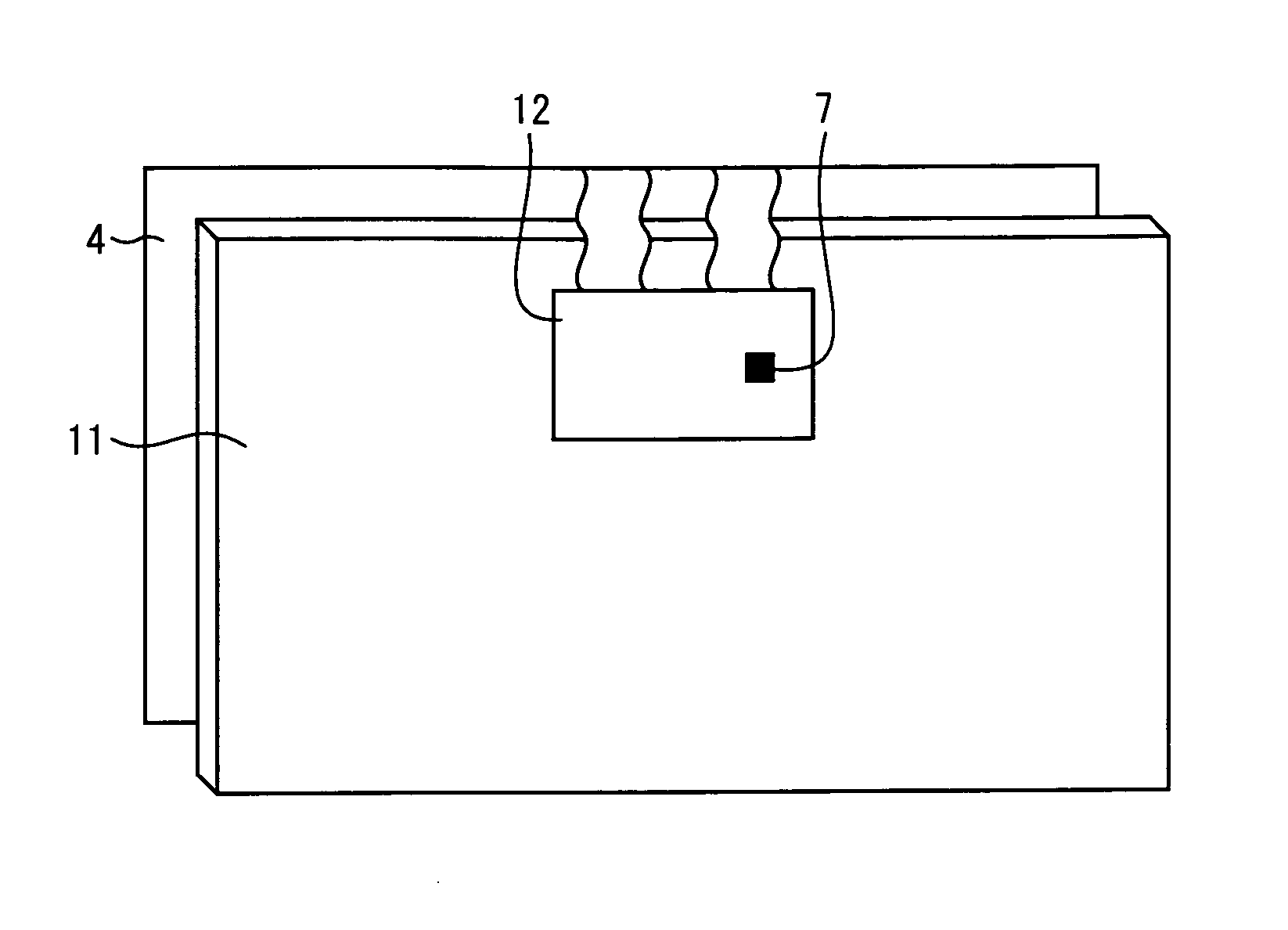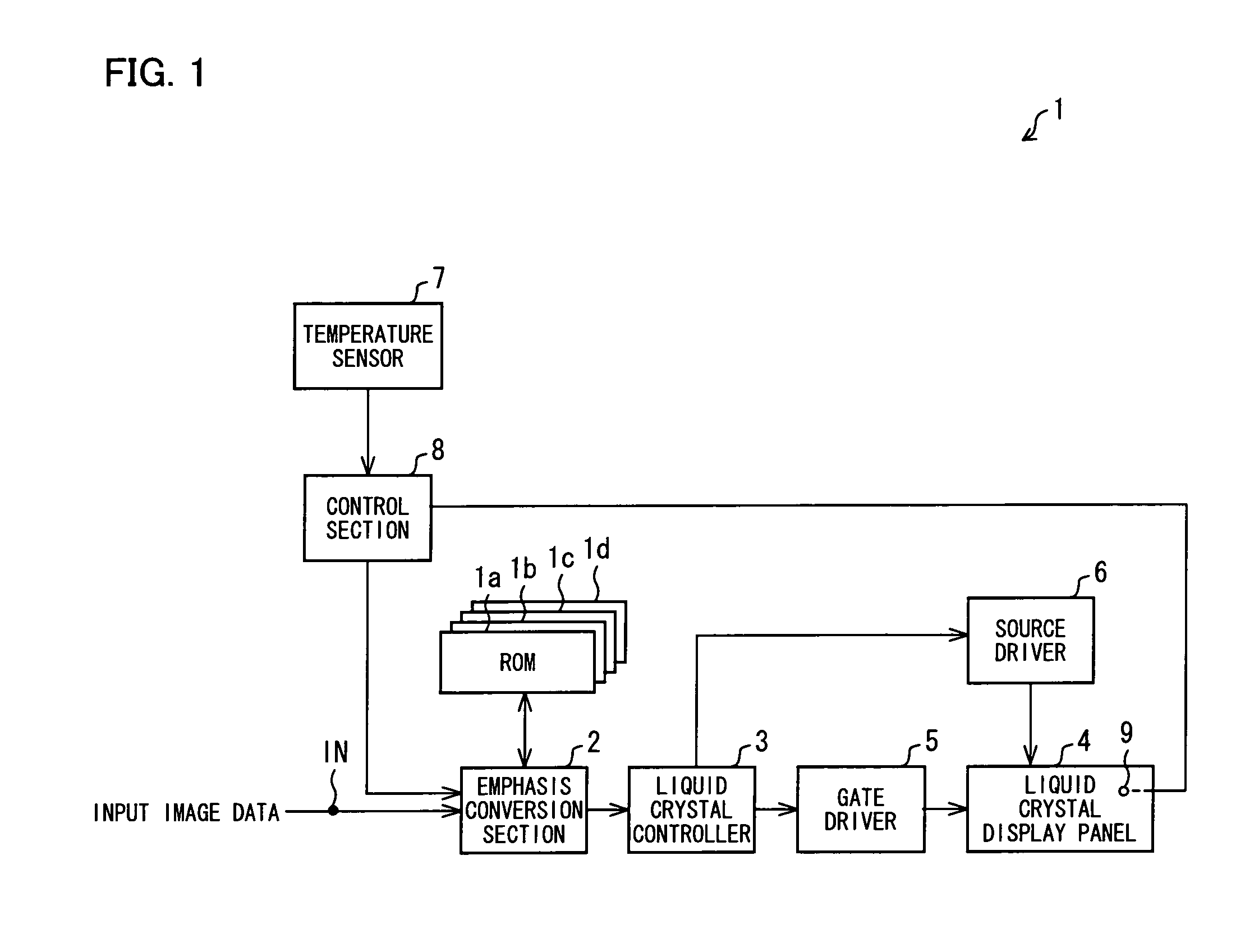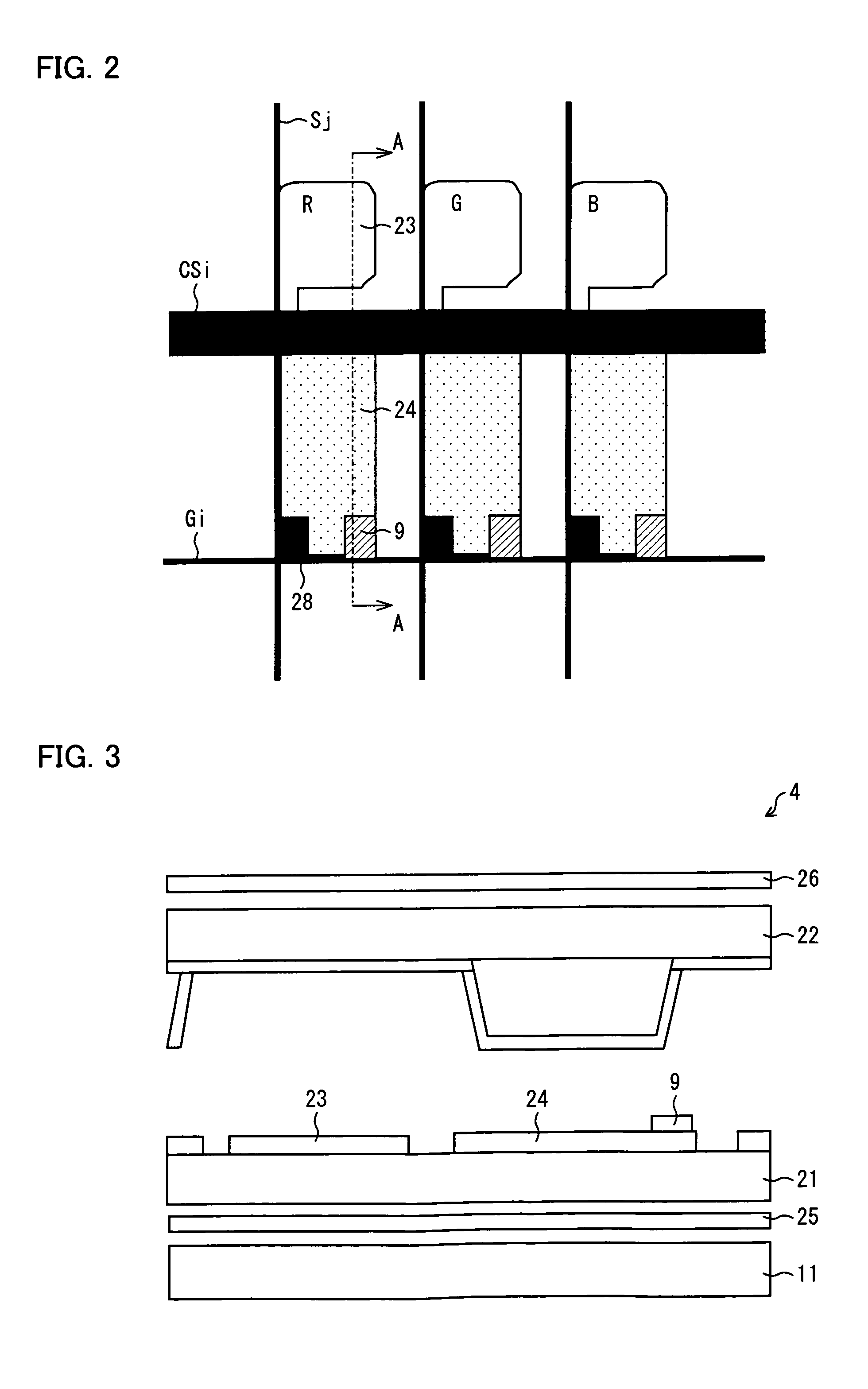Liquid crystal display device and control method thereof that drives image data based on detected temperature and intensity of external light
a liquid crystal display and temperature detection technology, applied in the direction of electric digital data processing, instruments, computing, etc., can solve the problems of inability to appropriately correct the difficulty of providing a temperature sensor in and the discrepancy between. to achieve the effect of accurately detecting the amount of incident light into the crystal display panel, and appropriately correcting the optical response characteristics of the liquid crystal display panel
- Summary
- Abstract
- Description
- Claims
- Application Information
AI Technical Summary
Benefits of technology
Problems solved by technology
Method used
Image
Examples
Embodiment Construction
[0061]The following explains an embodiment of the present invention. FIG. 1 is a block diagram schematically illustrating a configuration of a liquid crystal display device 1 according to the present embodiment. This liquid crystal display device 1 is to be provided in a cellular phone, and includes a transmissive region and a reflective region. In the transmissive region, display is performed by transmitting light from a backlight through each pixel, while in the reflective region, display is performed by reflecting incident external light.
[0062]As illustrated in FIG. 1, the liquid crystal display device 1 includes OS table memories (ROMs, look-up tables) 1a to 1d, an emphasis conversion section 2, a liquid crystal controller 3, a liquid crystal display panel 4, a gate driver 5, a source driver 6, a temperature sensor 7, and a control section 8. The liquid crystal display panel 4 includes an optical sensor 9 that detects a light intensity of incident external light that enters the ...
PUM
 Login to View More
Login to View More Abstract
Description
Claims
Application Information
 Login to View More
Login to View More - R&D Engineer
- R&D Manager
- IP Professional
- Industry Leading Data Capabilities
- Powerful AI technology
- Patent DNA Extraction
Browse by: Latest US Patents, China's latest patents, Technical Efficacy Thesaurus, Application Domain, Technology Topic, Popular Technical Reports.
© 2024 PatSnap. All rights reserved.Legal|Privacy policy|Modern Slavery Act Transparency Statement|Sitemap|About US| Contact US: help@patsnap.com










